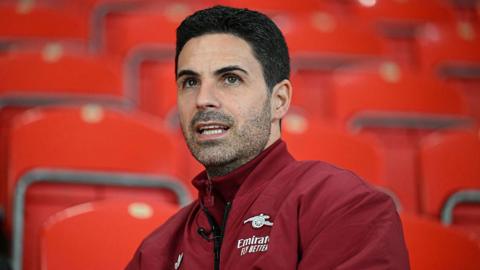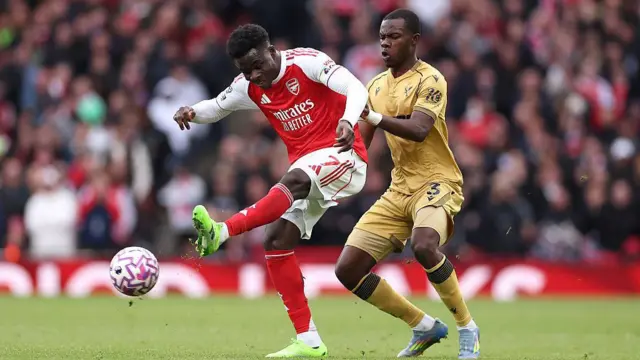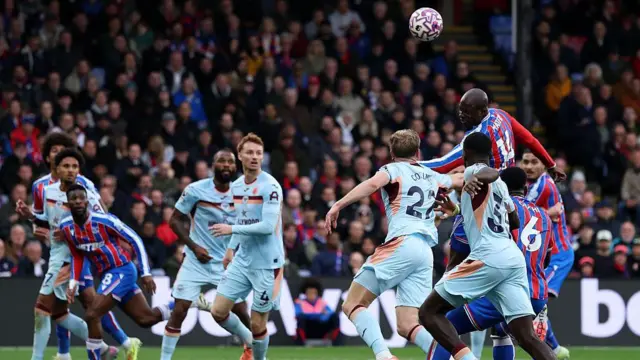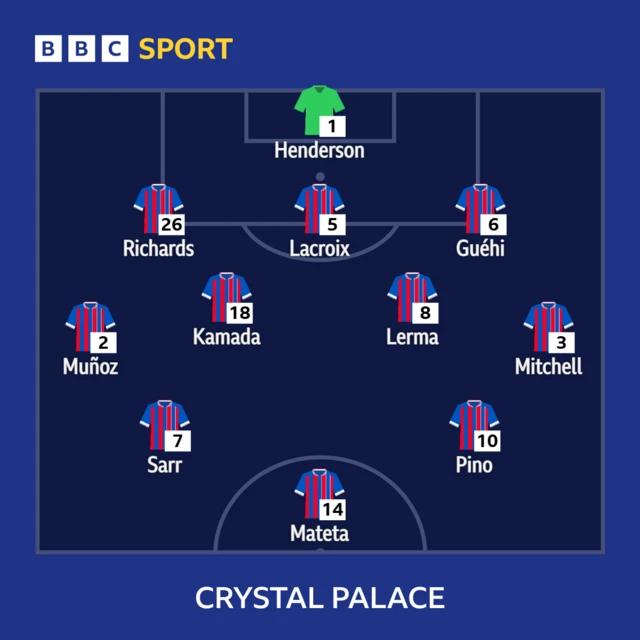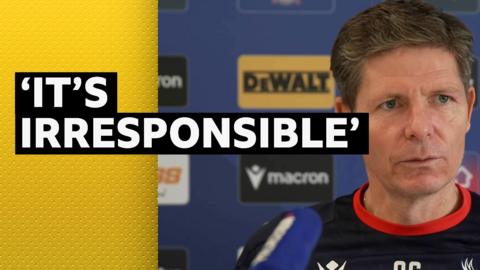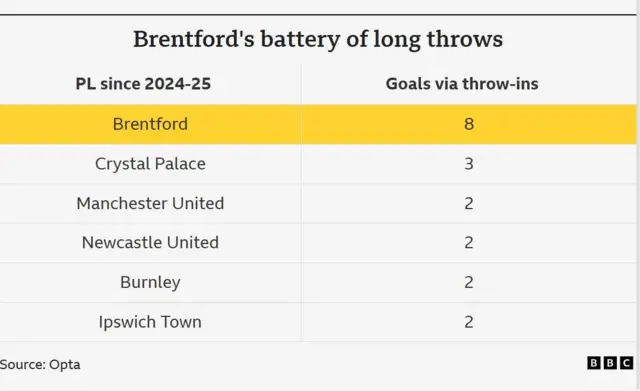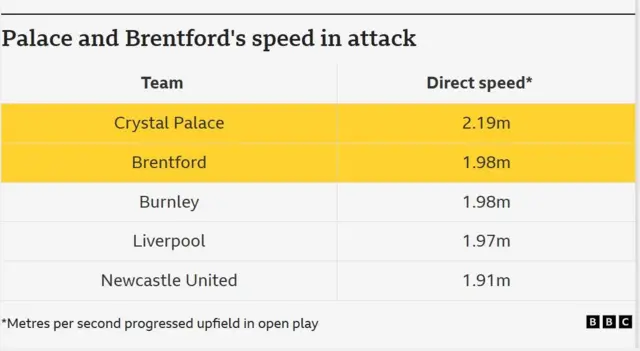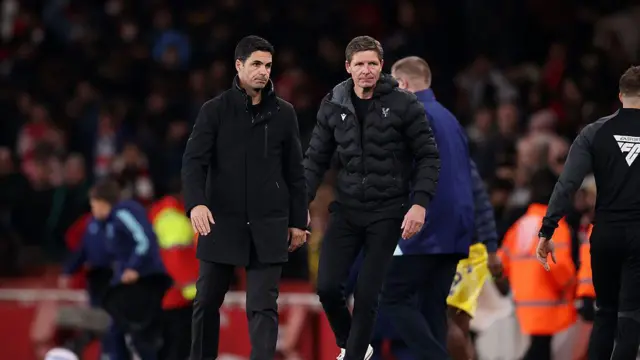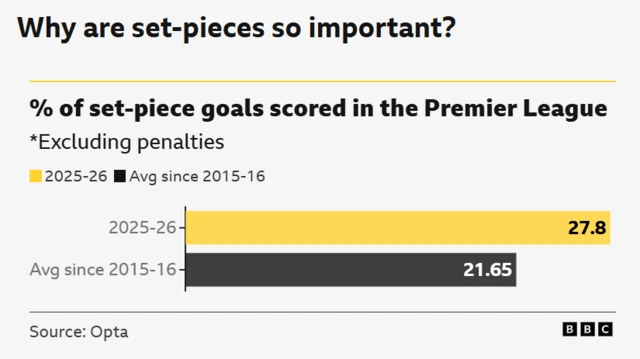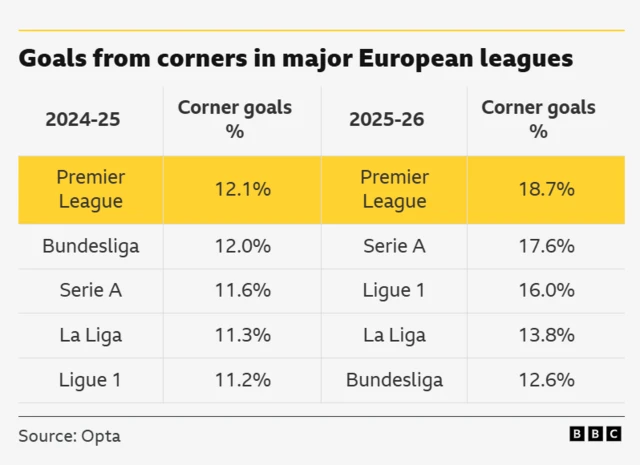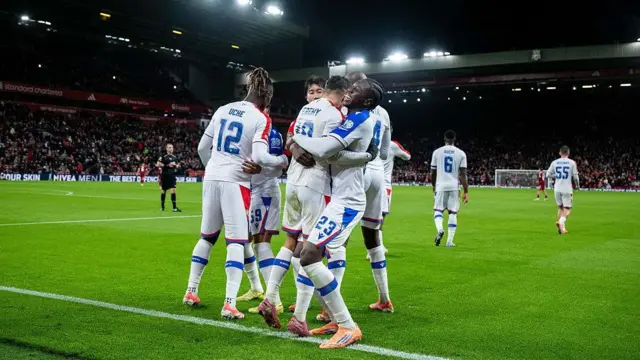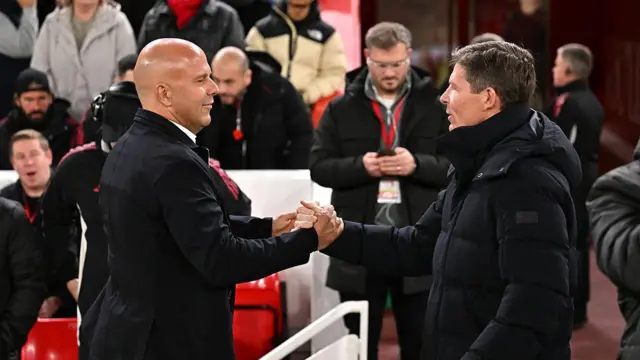Is this sustainable?published at 09:26 GMT
Alex Pewter
Fan writer

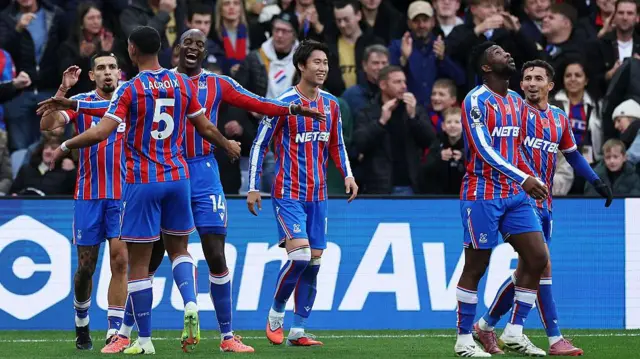 Image source, Getty Images
Image source, Getty ImagesSaturday's victory over Brentford was significant for Oliver Glasner's team, as it continued the momentum from the mid-week cup victory over Liverpool, and ended a three-game winless run in the league.
In a congested Premier League table, keeping pace with the pack is clearly essential, as the squad faces a relentless run of games ahead until the new year.
This season, Glasner has used 22 players in the Premier League, with two of them having now departed.
Of the remaining 20, there is a clear core of 15, each of whom has started games. Eddie Nketiah, a five-time substitute, is now unfortunately out due to injury.
Having just passed the quarter-mark stage in the league, that group has played 98.7% of the minutes available – Eberechi Eze, in his one appearance against Chelsea, has still featured more than all the others combined.
It is therefore no surprise that Palace currently have the most completed full games from players in the league so far, the fewest substitutions used, and the joint shortest average substitute length at just 15 minutes.
The question that begs to be asked is whether that approach is sustainable. In a winning situation against Brentford, the introduction of Will Hughes and Justin Devenney is logical, allowing the team to close out the game.
However, only Eddie Nketiah appears to be trusted as an attacking option when available.
It was encouraging to see Jaydee Canvot make a Premier League debut briefly in the right back berth, but the subsequent switch to move Daniel Munoz behind the centre forward would suggest a lack of belief in the attackers on the bench.
Thursday's Conference League game against AZ Alkmaar will likely involve some rotation, but further sustained injuries to the core squad due to overwork could disrupt an encouraging start to the season.
Find more from Alex Pewter at FYP podcast, external












